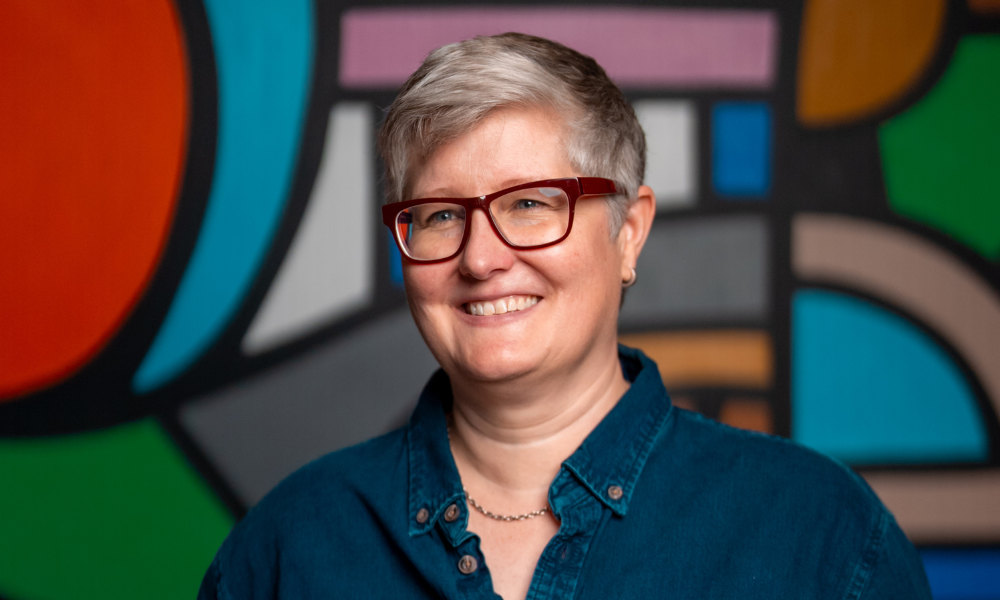Those aged between 25 and 43 now make up 38% of the market – but it’s not without some family help

More and more young people are buying their first homes – but they’re also receiving a fair amount of help in doing so. Research from NAR found that millennials, those aged between 25 and 43, now make up 38% of the market. However, according to the same report, 25% of millennials received down payment help – either a gift or loan from family or a friend – in order to buy.
For Julee Felsman (pictured), VP of Lending at Rate, it’s a feeling she knows all too well – revealing that in 2024 it’s affordability, not the deposit, that’s now the biggest barrier for younger buyers.
“Historically and statistically, the down payment has always been the primary barrier to entry for first-time homebuyers,” Felsman told MPA. “But since the summer of 2022, that’s shifted. Now, it’s really about affordability.”
“I try to get them thinking longer term”
The landscape has changed dramatically, with inflation affecting everything from rent to everyday expenses, making it increasingly difficult for individuals to save for a down payment.
To combat this pervasive sense of defeat, Felsman advocates for a proactive approach.
“I try to get them thinking longer term,” she said. A crucial first step she recommends is what she refers to as a “pre-pre-approval.” This involves potential buyers applying for a mortgage not with the intent of purchasing immediately, but as a fact-finding mission to understand their financial standing.
“It de-escalates the idea of having a conversation with a mortgage lender,” Felsman added. “By treating the application process as a tool for gathering information, we can identify what puzzle pieces are missing and create a roadmap to get them into a home.”
This approach serves multiple purposes. It not only alleviates the stress of engaging with a lender but also shifts the focus from immediate purchasing pressure to strategic planning. “If you don’t talk to a lender, how do you know when you’re ready to buy a home?” Felsman asked. By making the initial steps more about gathering information than making an offer, first-time buyers can better understand what they can afford and what adjustments might be necessary to achieve their goals.
Felsman also addressed a common misconception in the home buying process: the belief that one must perfectly time the market to secure the best deal. She argued that this mindset is not only flawed but counterproductive.
“You’re not buying the market – you’re buying a home. There are good deals in bad markets and bad deals in good markets,” she said.
“Do you have a stable job?”
Instead, she advises focusing on personal circumstances and ensuring that the timing is right for the individual buyer.
“Do you have a stable job? Are you going to stay in the area for at least five or more years? Can you swing the payment?” These are the questions Felsman urges potential buyers to consider. If they can answer these affirmatively, then it might be time to take the plunge into homeownership.
This focus on the individual’s situation over market conditions is a recurring theme in Felsman’s guidance. She told MPA an anecdote about a client who was hesitant to buy until next year. After reviewing his financial situation, she highlighted a significant disconnect between what he hoped his payment would be and what it would realistically be.
“I would encourage him to, when he writes his rent check every month, look at what the delta is between his hypothetical new mortgage payment and what he’s paying for rent,” she said. By consciously putting that difference into savings, the client can gauge whether his budget could handle the increased cost without compromising his lifestyle.
Felsman’s approach is about more than just preparing financially—it’s also about mindset. She often discusses the long-term benefits of stabilizing housing expenses and building equity, which are key factors that renters often overlook. Even though it might be cheaper to rent than to buy in the short term, Felsman encourages her clients to think about the future.
“Home appreciation is exponential. The sooner you can pull it off, the better off you’ll be financially for the long run,” she said.
The dilemma of whether to wait for better interest rates or jump into the market now is another significant concern for first-time buyers. Felsman’s advice here is pragmatic.
“There’s no way to know if rates will fall,” she said. “If you can make it work now, and you know it’s only going to get better, then why wait? Homeownership should be a good thing, not a bad thing. If you’re methodical about figuring out what your budget is, and you stick to that, then you’ll [succeed].”
This methodical approach is critical to avoiding the pitfalls of becoming “house poor”, where too much of one’s income goes toward housing costs, leaving little room for other expenses.
“It’s all about getting the crock pot going sooner than later,” Felsman added.



